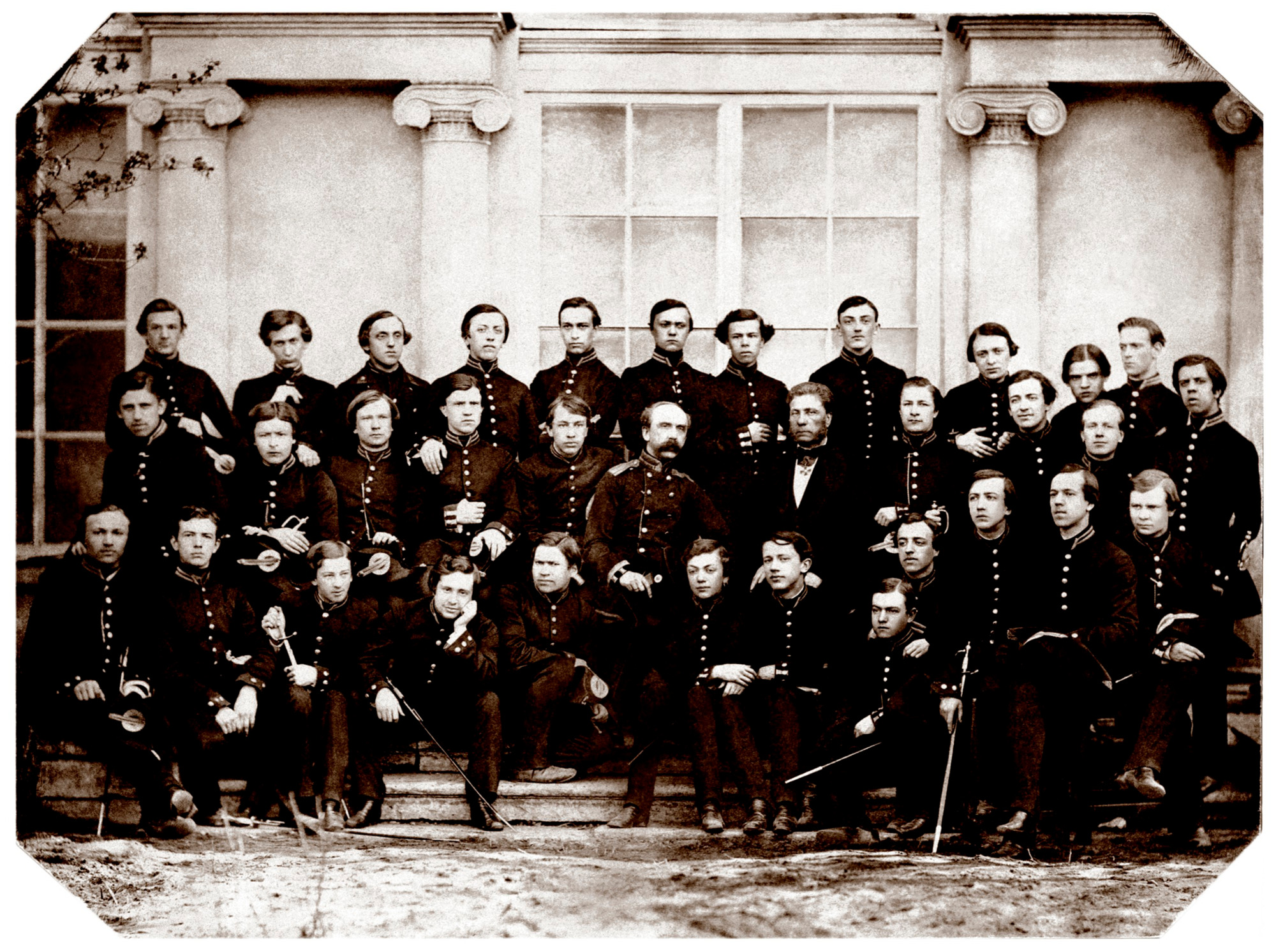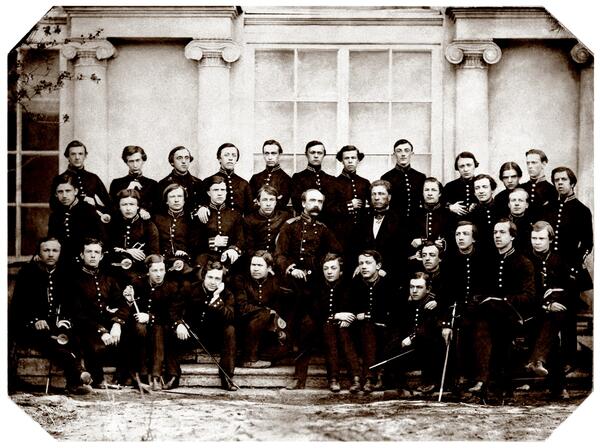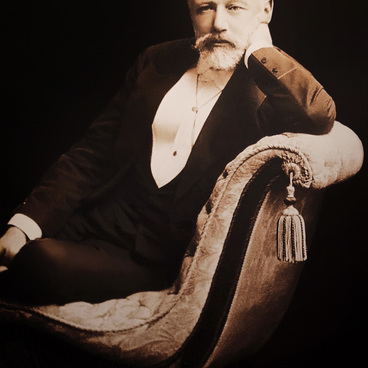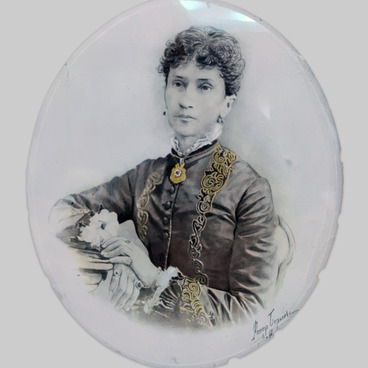This picture was taken on May 29, 1859. It captures students of the School of Jurisprudence. Pyotr TchaikOvsky is sitting in the bottom row, sixth student from the right. At the time, he was 19 years old.
The composer said his admission to the School was ‘the first serious grief in his life’: a ten-year-old boy suddenly found himself cut off from his family. His parents who lived in Alapaevsk visited him once a year, or even less often, and he missed his beloved mother terribly. His family wanted the best for Pyotr: his father managed to arrange for his son to be a paying student, i.e. his studies and expenses were covered by his parents, not the state. Such an arrangement meant general rules did not apply to the young boy. Plus, his parents chose that particular institution because that’s where they taught music well.
Pyotr Tchaikovsky joined a prep school because the main course was available from the age of twelve. Despite being homesick, after a while the boy got used to the school, made friends with his classmates, and became a diligent student. Two years later, the family moved to St. Petersburg, so young Pyotr was over the moon about the fact he could now see his family every weekend.
It was at the school that the future composer made friends with the future famous poet Aleksey ApUkhtin. Apukhtin was younger, but he studied so well that he skipped a year, so him and Tchaikovsky ended up together. Back then, Apukhtin was already a celebrity at the school: he was considered a very talented young man. The two friends influenced each other: Pyotr Tchaikovsky got his friend into music, and Apukhtin educated the future composer in literature. Their friendship lasted for many years after the graduation.
In 1885, the School of Jurisprudence celebrated its fiftieth anniversary. The management asked Tchaikovsky to compose a piece for the important date, and he created the Jurisprudence March. However, the composer himself considered the march a trifle worth nothing. In his letter to NadEzhda von Meck on October 27, 1885, he confessed: “On the one hand, composing these things is extremely boring and annoying, but on the other hand, I don”t feel comfortable refusing.” Later, Pyotr Tchaikovsky wrote to Vladimir StAsov that he did not want to attend the celebrations at the School of Jurisprudence, including because he did not want to hear the performance of the march.
The composer said his admission to the School was ‘the first serious grief in his life’: a ten-year-old boy suddenly found himself cut off from his family. His parents who lived in Alapaevsk visited him once a year, or even less often, and he missed his beloved mother terribly. His family wanted the best for Pyotr: his father managed to arrange for his son to be a paying student, i.e. his studies and expenses were covered by his parents, not the state. Such an arrangement meant general rules did not apply to the young boy. Plus, his parents chose that particular institution because that’s where they taught music well.
Pyotr Tchaikovsky joined a prep school because the main course was available from the age of twelve. Despite being homesick, after a while the boy got used to the school, made friends with his classmates, and became a diligent student. Two years later, the family moved to St. Petersburg, so young Pyotr was over the moon about the fact he could now see his family every weekend.
It was at the school that the future composer made friends with the future famous poet Aleksey ApUkhtin. Apukhtin was younger, but he studied so well that he skipped a year, so him and Tchaikovsky ended up together. Back then, Apukhtin was already a celebrity at the school: he was considered a very talented young man. The two friends influenced each other: Pyotr Tchaikovsky got his friend into music, and Apukhtin educated the future composer in literature. Their friendship lasted for many years after the graduation.
In 1885, the School of Jurisprudence celebrated its fiftieth anniversary. The management asked Tchaikovsky to compose a piece for the important date, and he created the Jurisprudence March. However, the composer himself considered the march a trifle worth nothing. In his letter to NadEzhda von Meck on October 27, 1885, he confessed: “On the one hand, composing these things is extremely boring and annoying, but on the other hand, I don”t feel comfortable refusing.” Later, Pyotr Tchaikovsky wrote to Vladimir StAsov that he did not want to attend the celebrations at the School of Jurisprudence, including because he did not want to hear the performance of the march.



